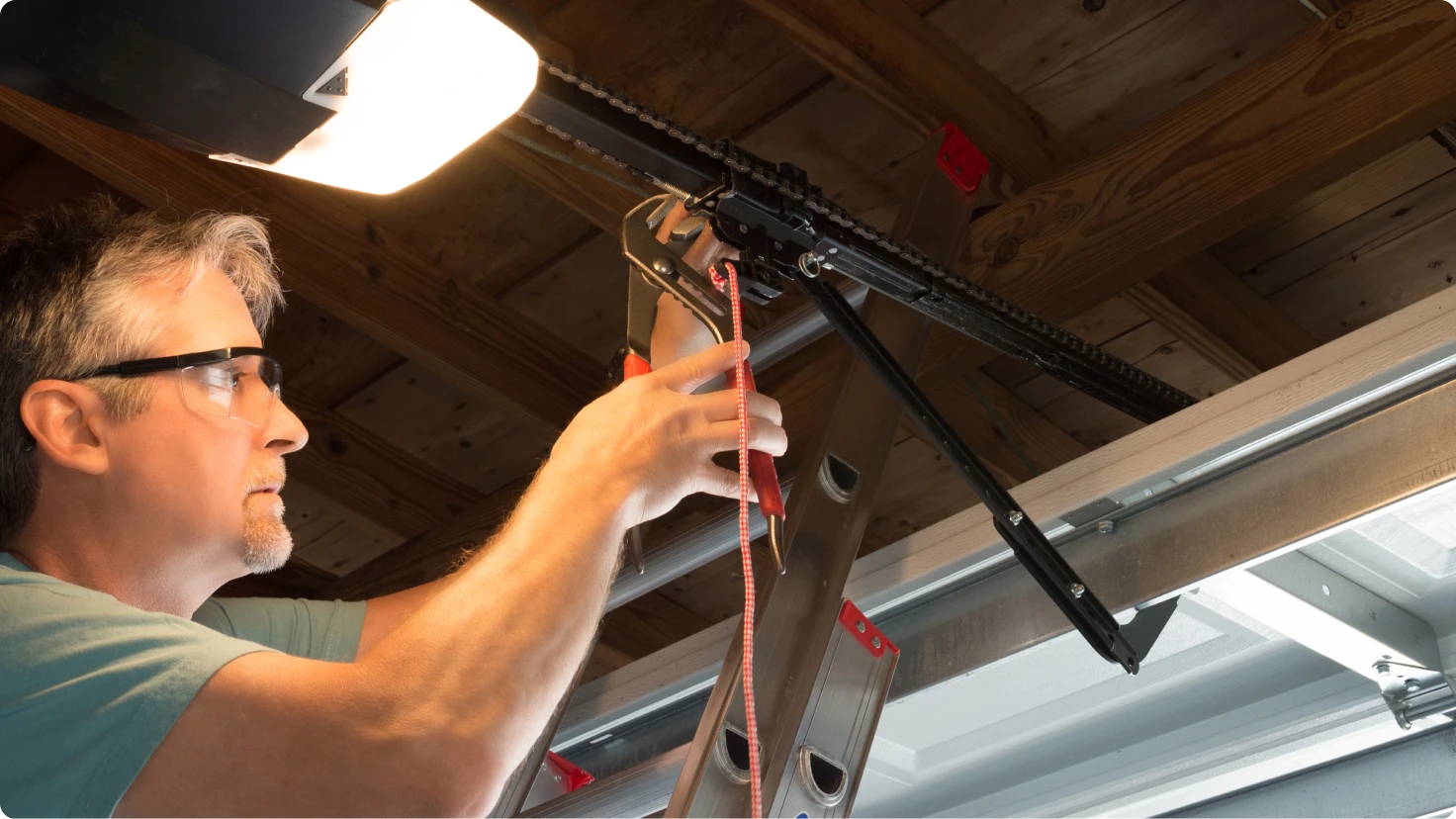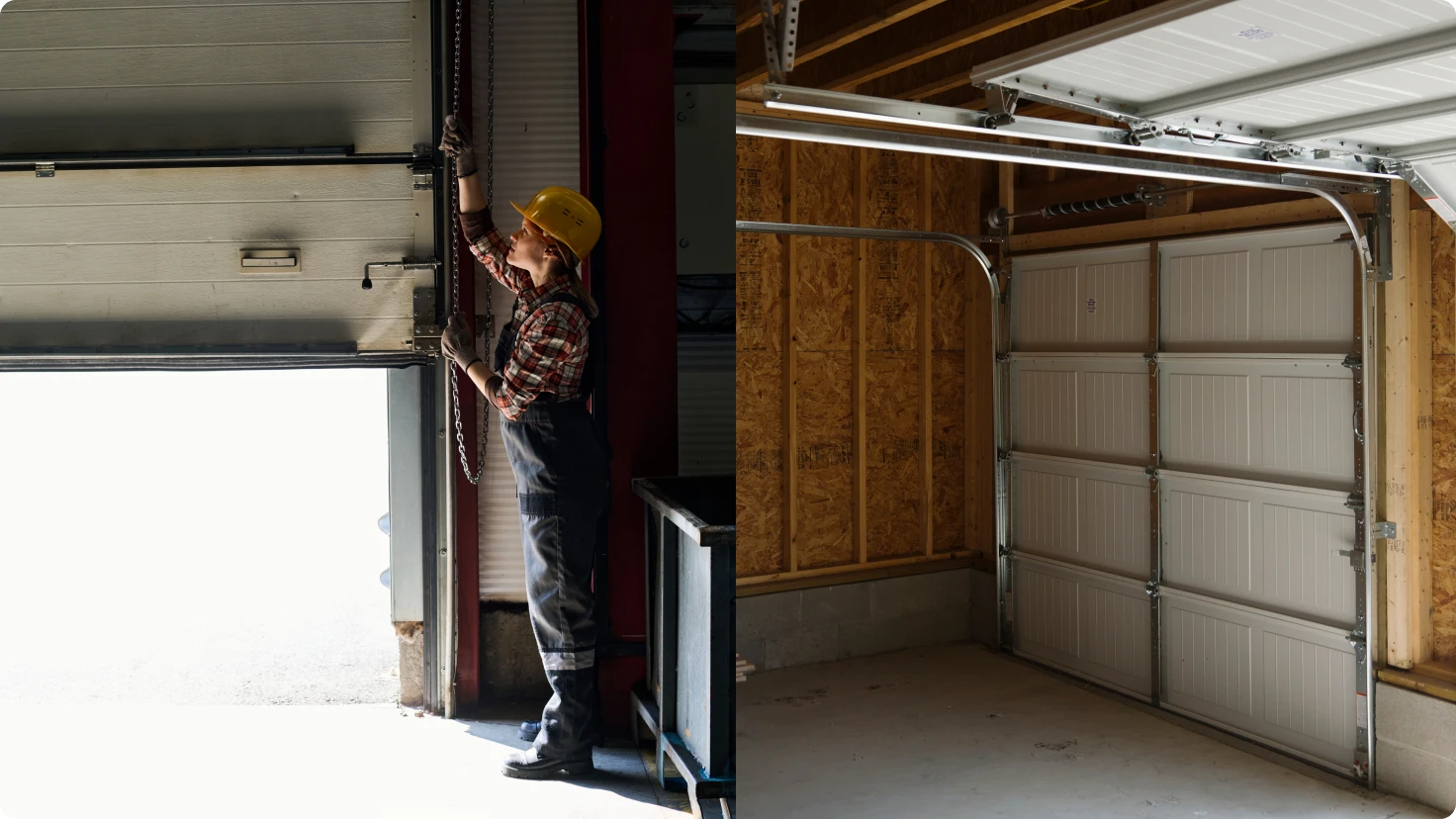Regarding professions requiring specific licenses, garage door installation and repair might not be the first that comes to mind. However, the garage door industry is a critical part of homeownership and business infrastructure, and ensuring that these systems are installed and maintained correctly is essential for safety and functionality. But do you need a garage door license to work in your state?

The importance of a garage door license
A garage door license is not a mere formality; it serves several vital purposes that benefit business owners and consumers. While some might view it as an unnecessary burden, it offers several benefits for both professionals and consumers.
Consumer protection
One of the primary reasons states require garage door licenses is to protect consumers. Garage doors are complex systems that, when improperly installed or maintained, can pose significant safety risks. According to a study by the Better Business Bureau, 80% of customers who hired licensed businesses were satisfied with their experience, compared to only 60% of customers who hired unlicensed businesses.
Licensing ensures that those in the industry are trained, knowledgeable, and skilled, reducing the likelihood of accidents and injuries related to garage doors.
Quality assurance
Licensing often involves specific educational and training requirements. This ensures that those with licenses have a certain level of expertise in their field, promoting quality workmanship and customer satisfaction.
According to a study by the University of California, Berkeley, the garage door industry in licensed states grew at an average annual rate of 5% over a five-year period, while the industry in unlicensed states grew at an average annual rate of 3%.
Consumers are usually more likely to trust licensed professionals with their garage door needs, knowing they have undergone training and testing to prove their competence.
Legal compliance
Operating without the required license can result in severe legal consequences, including fines and the suspension of your business. You must be aware of your state’s regulations and adhere to them to avoid legal troubles.
According to the National Association of Home Builders, 38 states and the District of Columbia require a license to operate a garage door business.
For professionals, having a license provides legal protection against potential disputes with clients or legal consequences for operating without proper authorization.

Professionalism
Licensing adds an air of professionalism to the industry. It demonstrates a commitment to high standards and expertise, which can help professionals attract more clients and command higher rates.
Reputation building
A valid garage door license can also help build trust with potential customers. It demonstrates your commitment to professionalism and competence, making it easier to attract and retain clients.
Safety
Licensed garage door professionals are more likely to prioritize safety in their work, reducing the risk of accidents or injuries related to garage door installation or repair.
Consequences of not having a garage door license
Now that we understand why having a garage door license is essential let’s delve into the potential penalties for not having a license.
Legal troubles
Operating a garage door business without the necessary license can lead to legal problems. This may result in fines, penalties, or even the shutdown of your business. Legal battles can be costly and time-consuming, putting your livelihood at risk.
According to available data, the average penalty amount for operating a garage door business without a license varies from state to state but can be as high as $10,000.
Loss of customers
Many consumers are cautious when choosing a garage door service provider. Without a license, you may struggle to gain the trust of potential clients, ultimately losing out on valuable business opportunities.
Safety concerns
Unlicensed individuals may lack the training and knowledge needed to perform garage door installations and repairs safely. This can result in accidents, injuries, or damage to property, which could lead to lawsuits and further legal issues.

Reputation damage
Operating without a license can damage your reputation in the industry. Negative word-of-mouth, online reviews, and press coverage can harm your business’s standing, making it challenging to recover.

Determining license requirements in your state
To ensure you comply with the laws and regulations in your state, you must determine whether a garage door license is required. Here’s how to go about it:
Contact your state licensing authority
Start by reaching out to the relevant state agency responsible for licensing contractors or tradespeople. They can provide information about the specific requirements for garage door professionals in your area.
Research state laws
Conduct independent research to understand your state’s laws and garage door industry regulations. Look for information on educational and training requirements, application processes, and fees.
Seek legal advice
If you’re unsure about the licensing requirements or need clarification, consult with a legal professional experienced in business regulations. They can provide guidance tailored to your situation.
Network with industry peers
Connect with other garage door business owners in your state through industry associations or local trade groups. They may have valuable insights into the licensing process and legal requirements.
You can also check the #1 Garage door management software > to assist with all the necessary functions you need to perform as a contractor, with optimal efficiency.

Steps to obtain a garage door license
If you’re considering a career or business in the garage door industry, it’s crucial to have a clear understanding of the licensing requirements specific to your state. Licensing regulations can vary significantly, so let’s explore how to navigate them effectively.
- Research State and Local Requirements: Begin by researching the specific licensing requirements in your state and any local regulations that may apply. This information can typically be found on your state’s licensing board website or by contacting the relevant authority.
- Complete Formal Training: In states with strict licensing requirements, you may need to complete formal training programs offered by vocational schools or trade associations. These programs often cover garage door installation, maintenance, and repair techniques.
- Pass Licensing Exams: Expect to pass written and practical exams that assess your knowledge and skills related to garage door systems. These exams typically test your understanding of safety protocols, building codes, and industry best practices.
- Obtain Liability Insurance: Many states require garage door professionals to carry liability insurance to protect themselves and their clients in case of accidents or property damage during a project.
- Submit an Application: Fill out the necessary application forms provided by your state’s licensing authority. Be prepared to provide documentation of your training, exam results, and insurance coverage.
- Pay Licensing Fees: Licensing typically involves fees for application processing and annual renewals. Ensure that you budget for these costs as part of your business expenses.
- Maintain Continuing Education: In some states, licensed professionals are required to participate in ongoing education or training to stay up-to-date with industry developments.
Conclusion
In conclusion, the importance of obtaining a garage door license in your state cannot be overstated. It not only protects consumers and ensures quality work but also safeguards your business from legal troubles and reputational damage.
Operating without a license can have severe consequences, including financial penalties and the loss of potential customers. To navigate this complex regulatory landscape, research your state’s specific requirements, seek legal advice if necessary, and prioritize compliance. Doing so lets you establish a reputable and legally compliant garage door business that thrives in the long run.

FAQs
Can I operate a garage door business without a license?
Operating a garage door business without the required license is illegal in many states. It’s essential to research and adhere to your state’s specific regulations. Engaging in unlicensed work may lead to fines, legal consequences, and potential harm to your business’s reputation.
Are there any specific regulations within the garage door industry?
Yes, the garage door industry may have specific regulations, including adherence to safety standards, building codes, and compliance with manufacturer guidelines. These regulations are in place to ensure the safe installation and maintenance of garage doors. Familiarize yourself with these standards, which can vary depending on your location.
How often should I renew my garage door license?
The frequency of license renewal depends on your state’s regulations. Licensing authorities typically require annual renewals, but some states may have different renewal periods. Keeping track of your license’s expiration date and ensuring timely renewals is crucial to maintain your legal standing in the industry.
How can I find out the specific licensing requirements in my state?
To determine the requirements in your state, contact your state’s licensing authority or visit their website. You can also consult industry associations or seek legal counsel for guidance.
Can I operate a garage door business without a license?
In states with strict regulations, operating a garage door business without a license is illegal and can result in penalties and legal consequences. It’s essential to comply with the law to avoid such risks.









